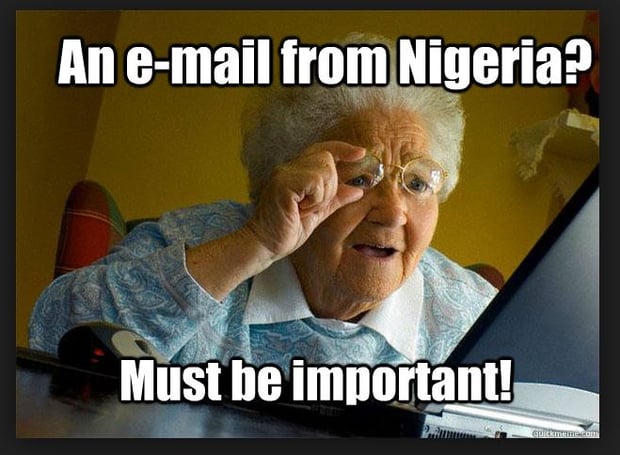 Image via scamnow.com
Image via scamnow.com
I am constantly amazed to hear about the dumb things some artists choose to do with money. You know, the guy who has every new sneaker known to man, but will complain about paying for gas to get to his own shows. Or the guy who hasn't paid his child support in months, but who'll have the most expensive studio sessions in the city. Ugh!
But even more gut wrenching than hearing about cheapskates with questionable priorities is listening to people who've been robbed. Not at gunpoint, not by home invasion, but robbed by willingly handing over hundreds (or thousands) of dollars to scammers.
The biggest mistake you'll ever make with a scammer is thinking you're the smartest person in the conversation. Music biz scammers rely on your ego being big enough to not ask the right questions as they run their game on you. Much like a used car salesman with a quota to fill, a good scammer will push you to meet deadlines that don't exist, drop all the right buzzwords to make the story sound good, and even guilt you into thinking you're missing a "huge" opportunity that everyone else wants.
The scam is always set up perfectly for you to give up your hard-earned cash with a smile. Now you're all giddy about the great journey ahead... until you realize too late that your money walked away into oblivion with no way to recoup. Here are some basic tips on how to keep from being a scammer's statistic.
1. Know who you're communicating with
How did you learn about the person you're communicating with? How did you meet him or her? If you "met" someone on social media and talked with him or her on the phone but have yet to email directly or meet in person, it should be an immediate red flag if that person is asking you to give up money. Some of the biggest scammers in the game are professional catfish just waiting to prey on artists who are easily hypnotized when they drop big names or offer up official-sounding opportunities. They rely on the fact that you can never "touch" them because you don't even know who they really are.
2. Check references
The music industry is a very small place. When you meet someone new and/or are referred to someone, ask around! Of course, every artist could get different results with different companies, so you can't expect that someone else's experience, whether good or bad, will translate to yours. But if you get too many people who you know are legit in the biz saying they either don't know the referred company/individual, or if you get too many "watch your back" comments, then that should be a red flag.
The flip side of this is when you're meeting someone who already works for a reputable record label who's running scams on the side. You actually know the person you're speaking with, he or she has been referred by someone else you know and has a "big" name in the business, etc., but what they're selling you is a load of crap. Take your meetings, listen to their pitches, then do your homework.
3. Get everything in writing
Seriously, duh! If you regularly do business with people or if you're in a situation where you can end your agreement with little risk to your assets or money, a contract may not be necessary. But that's rare. At the very least, you need an email trail with dates and times in case you need to go to court, always referring back to rule number one, of course.
[6 Contracts That Every Serious Musician Should Have]
4. Don't send money without a trail
Being asked to rush that wire through Western Union or MoneyGram with just a "password" because you'll be an opening act for a major artist in your city next month? Not so fast. Without a government name, address, and phone number of contact, anyone can pick up money on the other end of the wire using the password. Fortunately, most wire services have gotten hip to some of these scams and have cracked down on the amount people can collect with just a password. So when a person asks you for $299 or some odd amount to open for a show, that's a red flag!
5. Copyright your work
Common sense would dictate that you should protect your work as an artist. But if you're a producer out giving away your beats or a singer handing out unprotected original songs, good luck with proving later on that it's your work if you haven't done your due diligence. If you can't buff up on copyright laws yourself, get a good lawyer who can advise you on the proper steps to lock in your work.
[Copyright Essentials: What Every Musician Should Know]
6. Don't give too much access to your accounts
Of course, this all goes back to number one again. If you're hiring a marketing team, publicist, intern, etc., then you're likely going to give them administrative access and/or passwords to some, if not all, of your accounts eventually. So know who you're dealing with, do your homework on them, so you understand their work ethic, temperament, etc. The last thing you need is someone hijacking your social media accounts because you were too liberal in handing out access.
Dove Clark is a brand development specialist, writer, and editor based in NYC. She is the founder of brand development and media relations company Tygereye Entertainment and Gen-X lifestyle blog UrbLife.com. Since 2001, Dove has written for the likes of AllHipHop.com, RIME Magazine, Elemental, YRB, Ozone and many more. Follow her on Twitter, Instagram, and Facebook.


